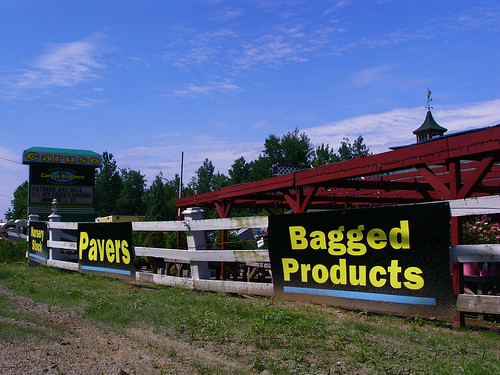“Bagged products” is little better than “cookery.” I’m gonna bet that no customer has ever asked the sales people for “bagged products,” that nobody’s ever checked the yellow pages for “bagged products,” and without context, nobody would come close to answering a question on what the heck “bagged products” are all about.
But we do have context.
And within that context, those two words are probably meaningful enough to the potential customers driving by. “Nursery stock,” “pavers,” and “bagged products” are just a few facets of that potential customer’s search for “landscaping” or “gardening supplies.”
The challenge here isn’t to reinvent our vocabularies, but to build systems that help the user who searches for “cookbooks” find more of them without needing an MLS to know the specific terms we used to catalog them. As it turns out, that search returns facets that give the user a hint that “cookery” might also be a good search term (it’s not perfect, but I’m happy to have any examples in this subject in my academic library to point to).
Aside: can somebody explain to me why a book might be cataloged as “Cookery, Indic” rather than “Cookery — Indic”? It’s not like “United States — History — 19th Century” would ever be represented as “United States, History — 19th Century” or “United States — History, 19th Century.” Or would it?
